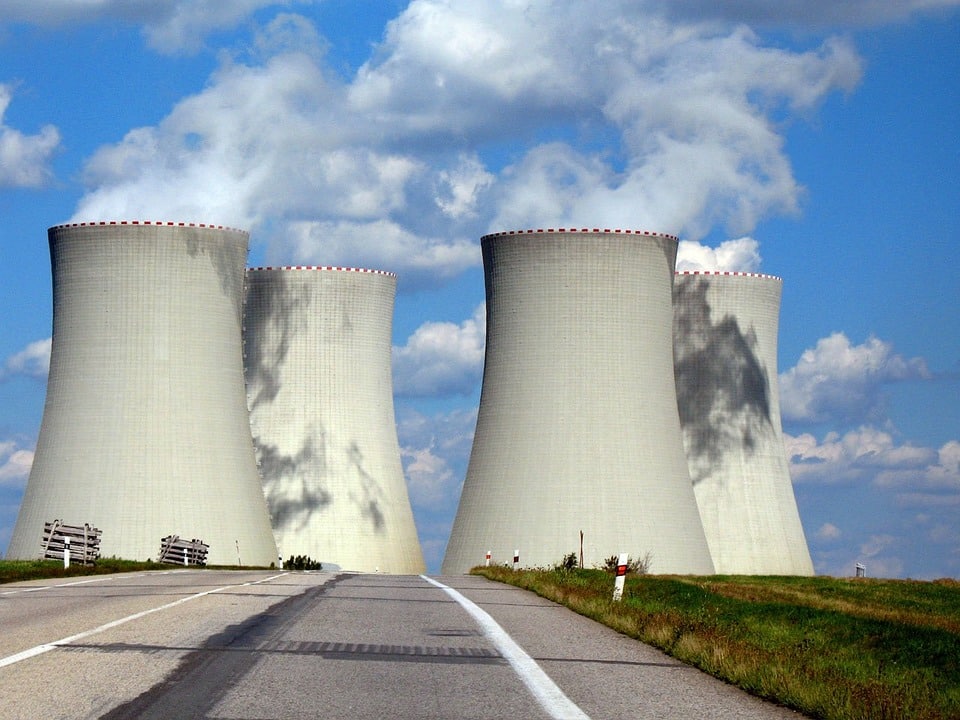U.S. Energy Department Seeks Applications to Aid Endangered Nuclear Power Plants

The U.S. Energy Department on April 19 announced that it will seek applications and sealed bids for the $6 billion Civil Nuclear Credit, or CNC, Program to keep the existing U.S. nuclear fleet running. The guidance provides information for owners or operators of nuclear power reactors that might have to close prematurely due to economic circumstances on how to obtain funding to avoid that. The instructions also include guidance on how to formulate and submit bids for credit allocations.
The Biden Administration believes that the current fleet of 92 nuclear reactors has a crucial role to play in achieving net-zero emissions nationwide by 2050. Twelve nuclear reactors across the U.S. have been forced to close early because of shifting energy markets and other economic factors since 2013. The agency said that the premature closures have negatively impacted air quality in those communities, resulted in an increase in carbon emissions, and eliminated thousands of high-paying jobs.
The first CNC award cycle will prioritize reactors that have already announced their intention to cease operations. Future CNC award cycles — including the second to be launched in the first quarter of the fiscal year 2023 — will not be limited to nuclear reactors subject to announced retirements.
The agency released a request for information (RFI) about various parameters of the program, under which nuclear plant operators can get federal credits if they demonstrate they are at risk of closure due to their inability to compete with renewables. The RFI seeks input on the certification process and eligibility criteria for reactors applying for credits, among other issues.
Measures to compensate the zero-emission attributes of financially struggling nuclear power began in New York, which created a zero-emission credit program as part of its Clean Energy Standard in August 2016 to prevent the premature retirement of three nuclear power plants — Exelon Corp.’s FitzPatrick, Ginna, and Nine Mile Point. Illinois followed suit with a similar program through a December 2016 law.
Further, in December 2021, the Illinois Power Agency finalized its plan for procuring carbon mitigation credits in accordance with a 2021 state law, enabling Exelon Corp.’s Byron and Dresden nuclear plants, which have a capacity of more than 4.1 GW, to receive financial support for five years from June 2022. Exelon already received financial support for its Quad Cities and Clinton nuclear reactors through the 2016 law, which awards zero-emission credits for the plants from June 2017 through May 2027.
Meanwhile, Ohio enacted legislation last year to repeal the provisions of a 2019 law that provided Energy Harbor Corp., with annual subsidies of nearly $150 million over seven years to support its ailing nuclear plants after a federal investigation into an alleged $60 million corruption scheme to pass the nuclear subsidy law and to prevent a referendum against it.
The CNC initiative, created by the 2021 Infrastructure Investment and Jobs Act, allows reactor operators to apply for certification and compete for credits to support the continued operation of their reactors. Under the law, applicants must show an economic reason for the reactor’s closure and that air pollution will increase consequently. Furthermore, the agency must assess whether the Nuclear Regulatory Commission has reasonable assurances that the reactor will continue to operate safely. Upon certification by the department, credits will be allocated over a four-year period.
Applications for certification and sealed bids for credits for the first CNC award cycle must be submitted by May 19.
EnerKnol Pulses like this one are powered by the EnerKnol Platform—the first comprehensive database for real-time energy policy tracking. Sign up for a free trial below for access to key regulatory data and deep industry insights across the energy spectrum.
ACCESS FREE TRIAL